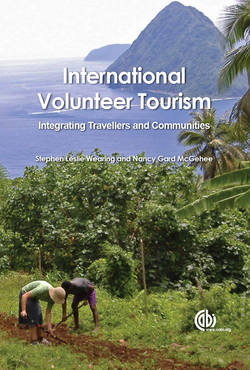Читать книгу International Volunteer Tourism - Stephen Wearing - Страница 8
На сайте Литреса книга снята с продажи.
1 Introduction Beyond Experiences that Make a Difference
ОглавлениеDespite the considerable growth in tourism and its many achievements, it has become clear that it has not always been able simultaneously to meet the needs of communities and those who visit them. Evidence that tourism often privileges visitors’ needs over host communities is well documented in the literature (Torres & Momset, 2005; Jamal et al., 2006; Meyer, 2007). In part, this has been attributed to a social, economic and political order that places profits ahead of people, which has dominated the globe and worsened over the past decade. The dominance of neoliberal politics, both generally and within tourism, continues to broaden the gap between wealthy and poor nations and, more broadly, between the Global North and Global South (Steinbrink, 2012). In response to this continued inequity, alternative ways of tourism development are being championed.
In addition to the obvious focus on volunteer tourism, a number of other forms of tourism will be introduced and discussed in this chapter (and throughout the book) as well, including mass tourism, sustainable tourism, ecotourism, alternative tourism and pro-poor tourism (PPT). Mass tourism refers to the mainstream, well developed and highly commodified form of tourism most commonly experienced, which involves an exchange of discretionary income for an experience that takes place away from the normal sphere of life. Sustainable tourism has received a great deal of attention (and an equal amount of controversy) and refers to tourism that is developed in a way that focuses on the long-term, economic, socio-cultural and environmental viability of a community. Ecotourism is often used interchangeably with sustainable tourism, but in fact has a stronger focus on the environmental protection of a destination. Alternative tourism emerged in the 1990s as a more radical form of sustainable tourism (Pearce, 1992). Alternative tourism sought to challenge increasingly commodified mass tourism and at the very least sidestep, but ideally disrupt, the consumptive practices that underpinned it. Finally, PPT is an approach to the industry that aims to provide opportunities for the poor. Over the past decade, volunteer tourism can trace its roots in alternative and ecotourism, but now can be found in virtually every sector and type of tourism, including mass tourism.
As a result of the growth of volunteer tourism, this book examines how volunteer tourism acts as an alternative form of tourism while struggling with its own commodification. The rise of commodified and packaged forms of volunteer tourism raises important questions about whether volunteer tourism really remains ‘alternative’. However, before addressing such critical considerations, we first turn to a discussion of the history and pedigree of volunteer tourism and the alternative ‘turn’ that we claim gave rise to it.
